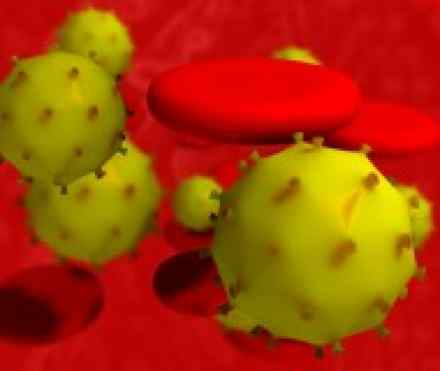
What is it?
Rotavirus is the most common cause of severe diarrhea in infants and children worldwide, according to the Centers for Disease Control and Prevention. Most children have at least one bout with rotavirus by age 2 or 3.
Although rotavirus infections are unpleasant, you can treat most of them at home with extra fluids to prevent dehydration. Occasionally, severe dehydration requires intravenous fluids in the hospital. Dehydration is a serious complication of rotavirus and a major cause of childhood deaths in developing countries.
Rotavirus infections are most common in winter and spring. Vaccines can help prevent rotavirus infection in your infant. For older children and adults — who aren't as likely to develop serious symptoms of rotavirus — frequent hand washing is the best line of defense.
Symptoms
A rotavirus infection usually starts with a fever, followed by three to eight days of watery diarrhoea and vomiting. The infection can cause abdominal pain as well. In adults who are otherwise healthy, a rotavirus infection may cause only mild signs and symptoms — or none at all.
Causes
Rotavirus is present in an infected person's stool several days before symptoms appear for up to 10 days after symptoms subside. The virus spreads easily through hand-to-mouth contact throughout this time — even if the infected person doesn't have symptoms.
If you have rotavirus and you don't wash your hands after using the toilet — or your child has rotavirus and you don't wash your hands after changing your child's diaper or helping your child use the toilet — the virus can spread to anything you touch, including food, toys and utensils. If another person touches your unwashed hand or a contaminated object and then touches his or her mouth, an infection may follow.
Sometimes rotavirus spreads through contaminated water or infected respiratory droplets coughed or sneezed into the air.
Because there are many types of rotavirus, it's possible to be infected more than once. However, repeat infections are typically less severe.
Risk factors
Rotavirus infections are most common in children ages 4 months to 24 months — particularly those who spend time in child care settings. Older adults and adults caring for young children have an increased risk of infection as well.
Complications
Severe diarrhoea can lead to dehydration, particularly in young children. Left untreated, dehydration can become a life-threatening condition.
Diagnosis
Rotavirus is often diagnosed based on symptoms and a physical exam. A stool sample may be analysed in a lab to confirm the diagnosis.
References
https://www.hse.ie/eng/health/az/D/Diarrhoea-and-sickness-in-children/
http://www.mayoclinic.org/diseases-conditions/rotavirus/home/ovc-20186926
http://www.bmj.com/content/347/bmj.f7204
http://www.nhs.uk/conditions/vaccinations/pages/rotavirus-vaccine.aspx

